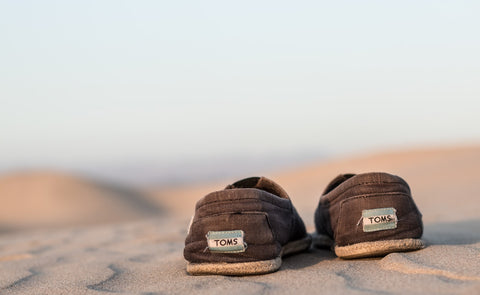
Before social entrepreneurship became organic to a company’s being, businesses operated as if they were separate from the community. They offered goods and services and that’s all they were there for. All they had to do was make their product look nice enough to convince consumers that’s what they wanted.
But consumers have realized their buying power, and while they are still perceptible to social change/ norms/ trends, they are still changing businesses in big ways. In fact, they aren’t just changing the products and services, they’re changing the entire corporate structure.
Now, more than ever, it’s important for companies to grasp the essentials of social entrepreneurship to stay in business.

What Is Social Entrepreneurship?
Essentially, social entrepreneurship is the act of using a portion of your profits for a good cause, such as cancer awareness. However, that’s just a basic definition, and some might say it’s outdated.
Due to recent politics, the rise in concern over global warming and plastic in the oceans, as well as many other social issues, corporations are being asked for more. Consumers don’t want to be contributors to global warming, so they buy electric cars, solar panels, or ride their bikes to work. They’re plagued with images of what their trash is doing to the oceans, so they buy stainless steel straws, reusable cups, glass tupperware…
Thing is, more and more companies are cropping up to fulfill these needs because they can’t be met by many bigger businesses who aren’t changing fast enough. Many of these companies are started by Millennials, and their idea of business is much different. These new companies work remotely around the world, don’t stick to the 9-5, provide comprehensive perks like unlimited pto, maternity and paternity leave.
By creating the companies they’ve always wanted to work for, they’re driving other employees to them. They grow because the consumers want to buy from ethical, environmentally friendly and socially responsible companies. Their employees stick around because they feel value in their work. In fact, the Huffington Post highlighted a new study which states that 94% of Millennials would like to use their skills for a good cause, and it influences their decision to join a workplace.
In short, consumers know they have the power to change companies- their products and their internal structure. They promise to keep buying from you if you prove that you’re as good a citizen as they want to be. You take care of your employees, your customers, the environment, they take care of you.
The History of Social Entrepreneurship
Social entrepreneurship has been around for a long time, but was confined mostly to singular acts by one person or one company. The definition was also much loser, remaining confined to the idea that if a baker focused on their needs as an individual, all would benefit. He produces the bread to make money for his family, but everyone else eats as well.
People like Florence Nightingale is another great case when she founded the modern nursing profession during the Crimean War. It is the highly skilled and organized profession that it is today due to her training and managing.
Nearly all inventions and services of today were founded on the needs of the public and of the individual. However, the ethical corporation, the corporate citizen… social entrepreneurship, did not emerge as a concept for corporations until the 1950s, with Howard R. Bowen.
As the president of Grinnell College from 1955-1964, Bowen penned a novel titled Social Responsibilities of the Businessman, which became the foundation of the study. In this Bowen states, “the obligations of businessmen to pursue those policies, to make those decisions, or to follow those lines of action that are desirable in terms of the objectives and values of our society.”
Since then, the study and application of corporate social responsibility has grown. However, the terms corporate citizen, corporate responsibility, and social entrepreneurship didn’t become popularized until the 1970’s.
In the ‘70s, oil prices skyrocketed, leading to economic downturn, and subsequent cuts to the nonprofit sector by the government totalling around $38 billion over the course of the decade. This, along with competition and social need, pushed the nonprofits to go commercial.
This push became known as social enterprise, which was strongly supported by private corporations and academic institutions. Schools created new programs and courses dedicated to developing new skills in social entrepreneurship. Private foundations and corporations offered operational support and created a network to help with funding.
Then, one company, Ashoka, was built entirely on the idea of social entrepreneurship. Ashoka is a non-profit that supports entrepreneurs globally with their ideas, to help support social change.
Then Evelyn Lauder, Senior Corporate Vice President of Este Lauder at the time and cancer survivor, personally raised $13.6 million to create the Evelyn H. Lauder Breast Center at Memorial Sloan-Kettering Cancer Center for diagnosis and treatment of breast cancer. Another $5 million was raised for research.
It’s a little-known fact of breast cancer awareness that she also worked with Self magazine on their issue for National Breast Cancer Awareness Month, from which the pink ribbons arose. These ribbons were passed to cosmetics and clothing stores around NYC, thereby roping in corporations for an ethical cause.
From there, the welfare became infectious, and more leaders were using their roles and their company’s financial gains for the greater good. Now we have crowdfunding sites to help those in need and to get startups on their feet, and corporations created entirely to help the public. Let’s take a look at some of those social entrepreneurship companies.

Social Entrepreneurship Examples
There are many ways to be socially responsible. Donations and acts of charity can be:
- The creation of education programs
- Providing financial support to underserved communities
- Helping orphaned children
- Donating to research to fight disease
- Providing clean water to areas without it
- Helping to clean up oceans and beaches
- Providing internet to remote communities
- Building schools in areas where kids are sent to labor in their youth
This list isn’t limiting to what you can do, and there are many companies that know this, and have taken it to heart.
TOMS
TOMS was founded by Blake Mycoskie after a trip to Africa, where he witnessed children without shoes, and the issues they were facing because of it. He formed TOMS with the intention of donating one pair of shoes for every pair purchased, and has so far donated over 60 million pairs of shoes.
Since then, TOMS has extended to eyewear, water, anti-bullying, and safe births.
TerraCycle
TerraCycle was built with an environmental focus- providing waste solutions, tackling recycling, and repurposing used objects that can be difficult to recycle. Not only do they partner with brands to collect your nonrecyclables for free, they are most recently making efforts to make it possible to move away from single-use packaging.
Seventh Generation
Seventh Generation was founded in the 80s with the production of eco-friendly products fo the household and personal hygiene. But it really didn’t catch on until consumers became more environmentally conscious.
Now, along with their ethical products, they donate 10% of their profits to non-profits and businesses that are also dedicated to environmental causes.
WaterHealth International
WaterHealth International provides safe and affordable water solutions to rural and underserved populations around the world, including 7 million across India, Ghanam and Nigeria.
They know that access to water is only part of the problem, and are dedicated all of the issues to help the 780 million people around the world that have limited access to clean and safe water.
StartSomeGood
StartSomeGood is a crowdfunding company that lets people come together to change their communities. They offer partnerships and education, and access to crowdfunding support to launch their ideas into reality, and change the world.
Acumen
Acumen is a bank lender that invests primarily in startups. What makes them different is that they only expect to see returns on their investment when the business has had enough time to build itself up- 7 to 10 years. So far they have provided $110 million to businesses.
FACT Goods
FACT Goods (Find A Cure Today Goods) was created to make a difference by designing products, such as Christian t-shirts with inspirational messages, to cultivate positivity and inspire people to be their best selves. Any purchase of these products help to fund charities such as Leukemia & Lymphoma Society, Michael J Fox Foundation, Christopher & Dana Reeve Foundation, Cancer Research Institute.



